Retro World Series and the Rise of Retro Esports
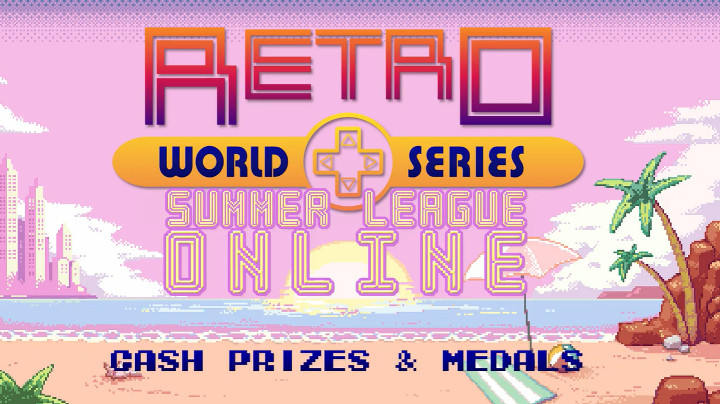
Hal Hawkins wanted to buy a boat. He loves fishing, and he had some free time, so it seemed like it was probably a good time to enter the world of boat ownership. However, he ended up doing something completely different, something that, if you ask me, is much cooler than buying a boat. He ended up founding Retro World Series, which is a series of competitive gaming events where players compete for cash prizes and medals.
“I was debating either getting a boat or starting business,” Hal told me on a Zoom call. “I’ve always wanted to start my own business, and just never really had an idea of what to do.”
Hal also loves video games, especially older ones. He’s the sort of guy who buys a Super Nintendo in college instead of one of the newer consoles.
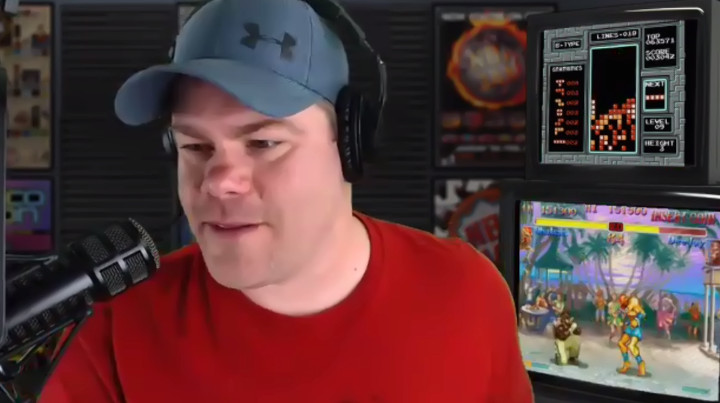
He’d also been into sports his whole life. He loves competition, but as he gets older, playing sports competitively is becoming less and less realistic. But the world of esports offers some of that same competitive energy, and while esports is a gargantuan industry at this point, very few people seem to be hosting retro esports events.
Hal saw an opportunity.
I noticed that e-sports was becoming a really big thing — this was 2015 — but I’ve never had the time to keep up with the modern stuff… It just seemed like you’d finally master a game and all of a sudden a new one would come out. That’d get a little frustrating for me.
My thought was, “Surely there are tons of people that are still playing old-school games. Why aren’t there any competitions for it?” As I started doing some research, I noticed that there were some… But no one was doing tournaments for Super Street Fighter II Turbo anymore, even though it used to be one of Evo’s highlights. No one was playing Mortal Kombat anymore, or Tekken — the old stuff.
So he decided to start hosting his own retro gaming tournaments.
It sounds ambitious — and it definitely was — but Hal knew he had to start small. He began by contacting conventions and hosting small free tournaments. The idea was that he’d host regional competitions, and then there would be a big main event at the end of the year. All of the small competitions were building up to the larger one. “The big coup de grâce,” as he called it.
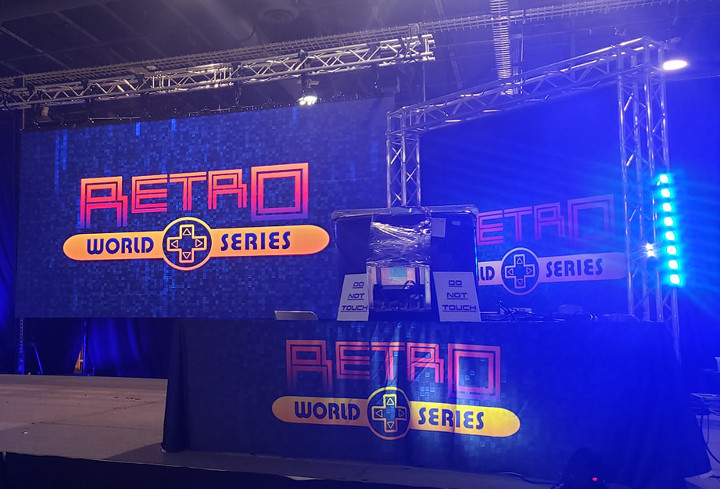
So he put on an event in Houston. The logistics seemed to make sense. Houston was relatively close, and there was nothing similar going on there at the time. It seemed like it would make the perfect trial run.
Unfortunately, the event didn’t go very well.
Hal didn’t want to share specific numbers, but turnout was not as big as he’d expected. “Okay,” he said. “I can either bite the bullet and keep going, or I can get out and sell everything and try to recoup all my losses.”
He reached out to a friend, who had done the photography at the Houston event. Here’s what the friend told him: “Don’t give up. Show conventions across the country what you’re capable of doing, because most these conventions rely on volunteers and you’re extremely professional.”
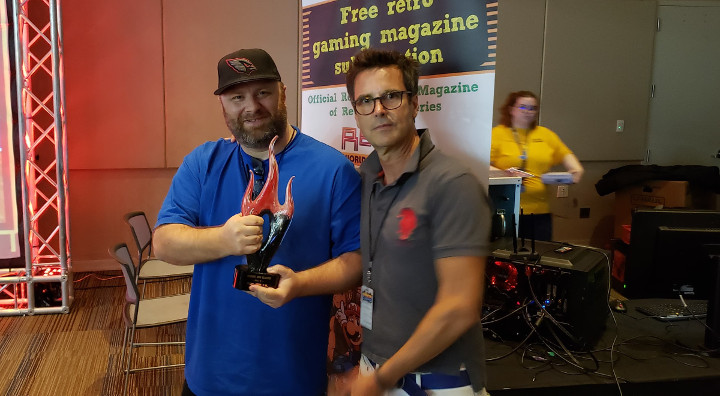
Perhaps the advice was extremely motivational, or maybe Hawkins just isn’t the type of person who gives up after a failed first attempt. Either way, he pressed on. He was determined to make Houston a valuable learning opportunity, as well as a stepping stone to new opportunities.
In his words:
So I reached out. A lot of these conventions were understandably skeptical… So I had to show them what I could do. Fortunately I had an event that I could show them… and fortunately some conventions decided to take a chance on it.
This allowed Hal to start building a portfolio. In 2017, which was just his second year running these events, he hosted tournaments at notable conventions such as Game On Expo in Phoenix, AZ; Let’s Play Gaming Expo in Irving, TX; and South Texas Comic Con in McAllen, TX.
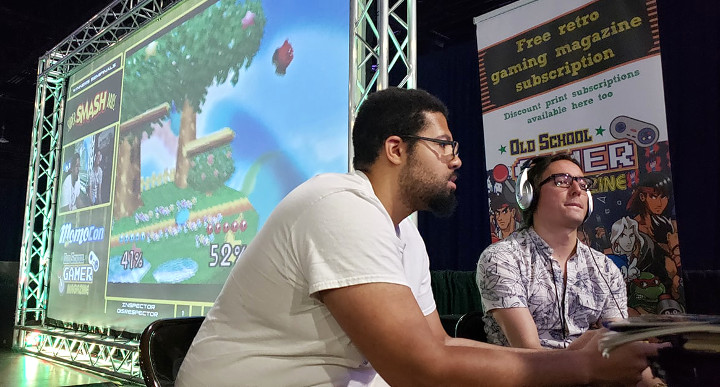
By 2018, it was off to LVL UP EXPO in Las Vegas, which Hal found to be validating. Vegas is for success stories. In the world of event planning, hosting a show in Vegas means you’ve made it.
Being able to put something on in Vegas was my ultimate dream. For any convention owner, any tournament organizer, to be able to put on a big thing in Vegas is the dream. And I was able to do it in just the second year of doing it.
Afterwards, several more conventions, such as Southern-Fried Gaming Expo, Comicpalooza, Retro City Fest, and Too Many Games Expo were added to Hal’s portfolio. And Momocon in Atlanta, GA. “Momocon… approached me after they saw what I did at a little convention in Atlanta,” Hal told me.
I can’t speak for the rest of the world, but in the United States we fixate on success stories. We love a good rags-to-riches tale. We love to see the underdog fight its way to the top. With these fantasies permeating our culture, however, comes a misconception that once you clear that first obstacle, success is just a natural outcome.
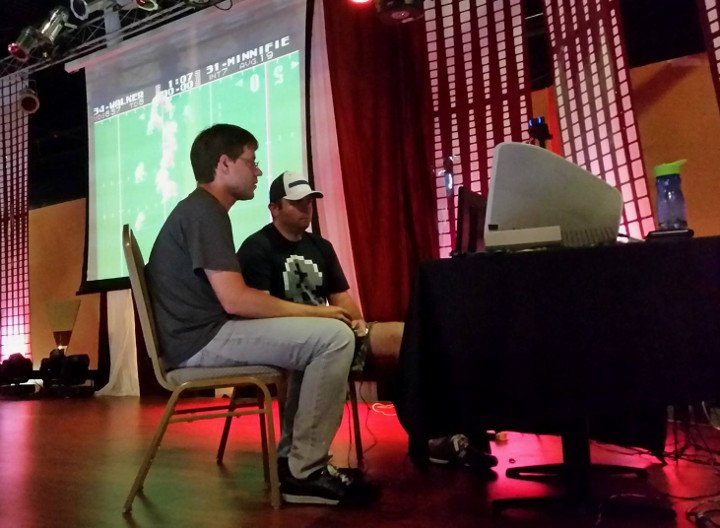
Anyone who’s had any measure of success, however, will tell you that’s not exactly how it works. The story of post-Houston Hal Hawkins isn’t one of clear skies and smooth sailing. Hal told me a few anecdotes about his learning experiences, but there’s one I found to be particularly illuminating (the pun was not intended, I swear).
I remember we were at one convention, and we were right next to a bunch of pinball competitions. The way the room’s lighting was set up was really weird, and they had these big halogen lights. So it was washing out our screen. I asked the manager of the hotel, “Hey, can you turn these off?”
The problem was it also turned off the lights for the pinball guys. We didn’t think that was a problem, because pinball stuff is all lighted up anyway. They don’t need lights, right? I’ve played pinball with lights off. But no, that was like some sort of cardinal sin because they got furious. They were like, “We need our lights on for our competition!”
From this, Hal learned to always inquire about the lighting situation reasonably far in advance. In big convention halls, the lighting can be pre-programmed, but the people who manage this don’t like to make adjustments on the fly. If you call in ahead of time, you can make sure you have the exact type of lighting you need for your event.
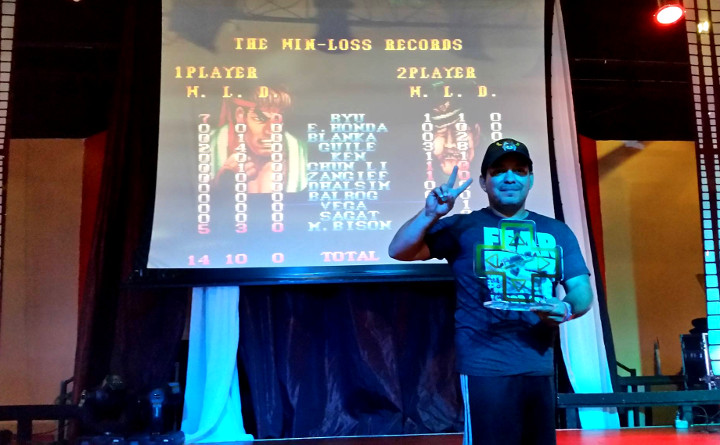
Even with speed bumps like this one, though, Hal persists, and he’s turned Retro World Series into a name people recognize.
Slowly but steadily, [more] people know who we are, and we’ve been getting a bigger following. Because when we go to the same cities each year, the same players show up. We get to know them; they get to know us, and they get to see what we provide… and they start showing up every time. They start looking forward to it.
So what’s the end game? What is it about the retro esports concept that would cause a guy like Hal Hawkins to sacrifice a boat for it? Well, here’s how he explained it to me:
I mean, obviously I want to grow. I would love to make money off of it someday, if that’s a possibility, but… [for now] I want people competing, like we all used to do at home with our friends and neighbors, you know, making bets, playing, talking trash. I want that experience, but on a larger level.
I don’t know if you did, but man, we would have parties where people would come over and play GoldenEye or Mario Kart or Halo, and we would talk so much crap, and just have fun and cheer. And that’s what I want. I just want that on a grand scale.
I think anyone who grew up playing video games can probably relate to this.
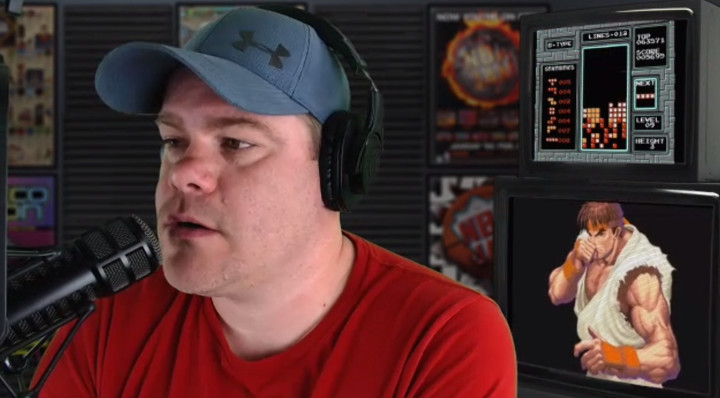
If you want to learn more about Retro World Series, or even register for a tournament, check out their official website.
